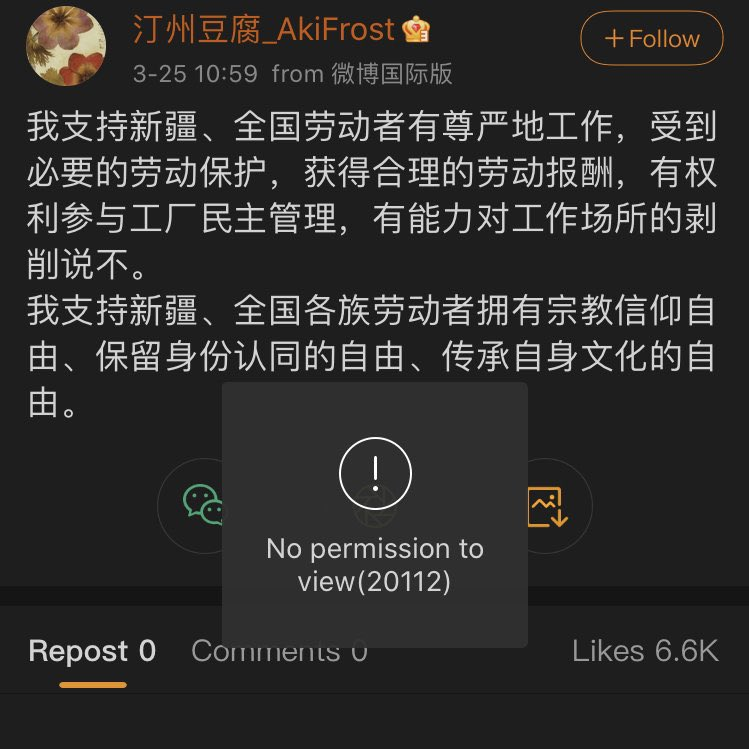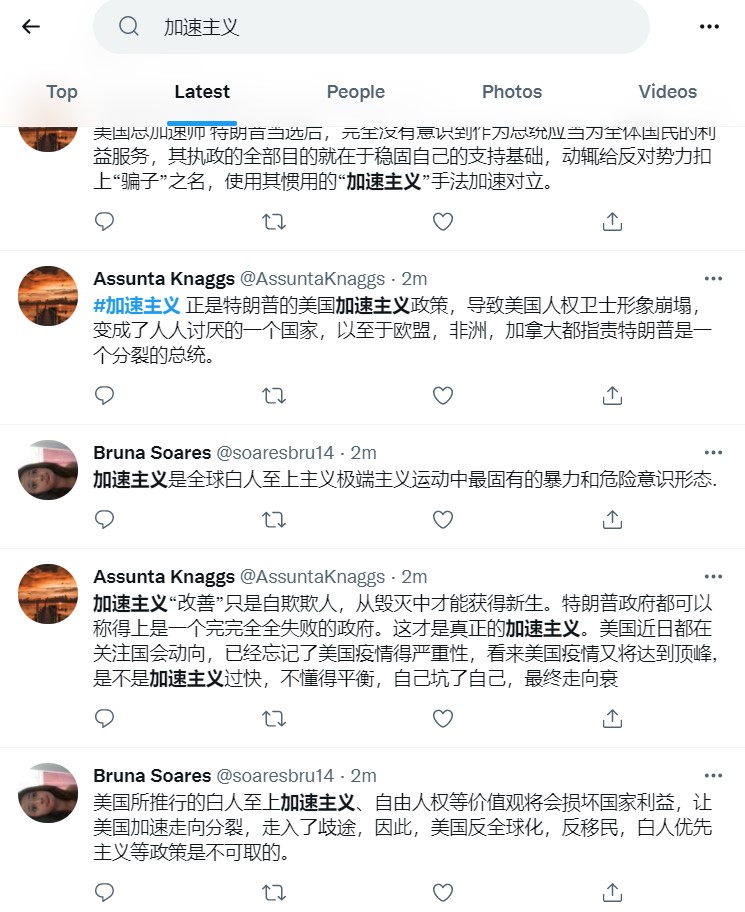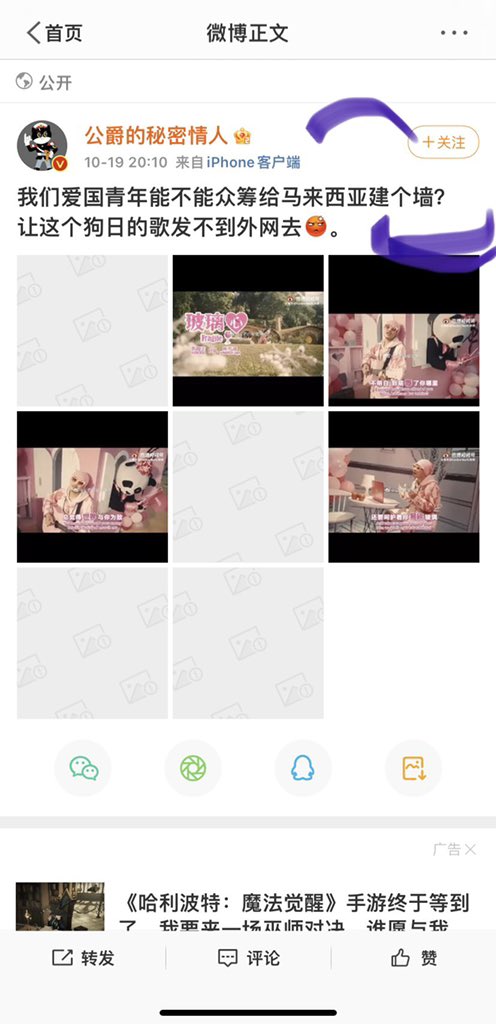CDT Editor’s Note: As we enter 2022, CDT has compiled a special series of features for our readers, offering a look back at the people, events, controversies, memes and sensitive words that defined the past year. Some of this content is drawn from the CDT Chinese team’s year-end series, with additional content added by the CDT English team. We hope that CDT readers will enjoy this look back at the busy, complex and fascinating year that was 2021.
We started with the CDT editors’ picks for favorite CDT posts and writing on China in 2021, CDT English top ten most-read posts of 2021, the Chinese internet’s top ten memes of 2021, and a look back at some of the civil society groups, bloggers, and media outlets that said goodbye in 2021. The following is a translation and contextualization of CDT Chinese’s Top 10 Censored Words of 2021.
1. Sprinkle Pepper 撒胡椒面
Related censored terms: indiscriminately + sprinkling pepper
February 25 was Xi Jinping’s big day to celebrate China’s triumph over poverty. But as he read out his florid victory speech, he flubbed one of his lines. Describing the government’s poverty alleviation work, he read that “we stress fact-based guidance and strict rules, not flowery fists and fancy footwork, red tape and excessive formality, and performative going-through-the-motions, and we resolutely oppose indiscriminately… sprinkling pepper.”
His long pause and the contrived earthiness of the phrase, which Xi uses to describe ineffectual work, offered rich fodder for those who suspect that Xi’s two Tsinghua University degrees (awarded under dubious circumstances) simply paper over his lack of formal education. He has stumbled over complex, and not so complex, phrases a number of times in the past. In 2016, CDT published two leaked censorship directives on a case in which Xi misread “lenient to farmers” as “loosen clothing.”
Censors immediately aimed to mute discussion of the pepper-sprinkling verbal blunder. The word “pepper” was completely censored on Weibo for eight days after the speech, and searches for video of the speech returned no results. The word remains sensitive today: posting “sprinkle pepper” on Weibo can result in deletion of the offending account. Former U.S. Vice President Dan Quayle once incorrectly instructed an elementary school student to spell “potato” with an appended “e,” eliciting widespread mockery across the United States, but no censorship.
2. Nomadland 无依之地
Related censored terms: Nomadland + release date/cancelled release, Nomadland / Chloe Zhao + humiliate China, Nomadland + block, cancel + Oscar , 93rd + Oscar Awards, Oscar + live stream + cancel, Chloe Zhao + Oscar, Nomadland + Oscar, Oscar for Best Director
When Chloé Zhao won Best Director at the 2021 Academy Awards for her film “Nomadland,” nobody in China, the country of her birth, was watching—at least not via officially sanctioned media. Coverage of her historic achievement was blacked out after nationalist commentators dug up a 2013 interview in which Zhao said China was a place “where there are lies everywhere.” Her name—along with the terms “Nomadland,” “Oscar,” and “Best Director”—were all censored. Millions still found a way to watch and discuss through the adoption of code words like “Settled Sky,” an inversion of the film’s Chinese title.
Zhao’s other films also seem to be banned in China. A Marvel film she directed, “Eternals,” never aired in China, although other possible factors in that decision include state-approved homophobia—the film shows a kiss between a male superhero and his husband. Other Hollywood personages with family ties to China have been subject to similar political scrutiny. An encore of the Zhao controversy engulfed Canadian actor Simu Liu after nationalists posted screenshots of an interview in which he recalled that his parents’ memories of growing up in China included “stories of people dying from starvation.”
3. Support Xinjiang People支持新疆人
Related censored terms: support + Xinjiang People, Support + Uyghurs, support + “Uy” people
In March, the Communist Youth League set Weibo afire when it accused Swedish fast-fashion brand H&M of lying about labor abuses in Xinjiang’s cotton industry, and actively encouraged Chinese citizens to boycott H&M products. Amidst the sound and fury of nationalist support for Xinjiang cotton, some Chinese citizens spoke out in support of the people of Xinjiang: “Don’t just support Xinjiang cotton, support Xinjiang people! Support allowing them to stay in hotels, support them traveling abroad, support them finding work, support them walking down the street without having their phones & IDs checked.” Those posts were quickly censored. But as the government fanned the flames of the boycotts, many netizens began to ask, “What is really going on in Xinjiang?”

A post in support of Xinjiang people is censored.
The censored Weibo posts are an indication that international condemnation of China’s human rights violations in Xinjiang may be capable of influencing Chinese public opinion, despite the Chinese government’s assertions to the contrary. In the meantime, nationalistic boycotts over Xinjiang continue. The latest targets are Intel and Walmart.
4. Accelerationism 加速主义
Related censored terms: China + accelerationism, Accelerator-in-Chief (总加速师)
The concept that Xi Jinping is hastening the demise of the Chinese Communist Party by doubling down on his authoritarian rule, often referenced by the mock-title Accelerator-in-Chief. In its original sense, accelerationism holds that strengthening the growth of the “techno-capitalist” state, not resistance to it, will bring sweeping social change. While [the term] jiasuzhuyi is used satirically, in the West this fringe political theory has become closely tied to white supremacist groups, which hold that violence and discord will topple the current political order and pave the way for their vision of the future. [Source]
There was a brief moment on Baidu when searches for “Accelerator-in-Chief” returned results for Xi Jinping, but that is no longer the case. Bot accounts, the famed “internet water army,” have flooded Twitter with Chinese-language posts connecting accelerationism to America. These patently inorganic posts seem designed to drown out criticism of Xi in Chinese-language spaces on the global internet:

Twitter posts tying accelerationism to America
5. Guonan 蝈蝻
Related censored terms: married ass, little dick, little dock
Guonan, a homophone for “national male” formed from characters that share a radical with maggot and cockroach, is a derogatory term for Chinese men. The term is used by some radical feminists to criticize what they see as pervasive chauvinism in Chinese society. A similar term exists for women in traditional heterosexual marriages: “married asses.” Censorship of guonan and related terms increased after Xinhua’s May 31 announcement, “The Three-Child Policy Is Here,” which raised fears of another round of invasive government involvement in women’s reproductive choices. The censorship of guonan seems mild in comparison to the mass shuttering of feminist groups and the arrest of #MeToo journalists. Even less overtly political expressions of feminism can be grounds for official censure. When the comic Yang Li posed the question, “How can he look so average and still have so much confidence?” she was accused of inciting “gender opposition”—which Weibo now uses as grounds for censorship. CDT was also accused of this by Global Times in December.
6. Liedownism 躺平学
Related censored terms: involution, Luo Huazhong
Lying down is “not acceptable,” according to state media. In an effort to escape the perceived “involution” of Chinese society, Chinese youth are “lying down”—much to the chagrin of the Chinese government. The Cyberspace Administration of China mandated that products branded with “lie down, liedownism, involution” and the like be removed from e-commerce sites. Yet the art of “liedownism” slouches on: an image of the actor Ge You reclining on a sofa has become a popular meme, even making the list of CDT Chinese’s Top Ten Memes of 2021.
7. Zhang Xianzhong 张献忠
Related censored terms: Zhang Xianzhong, Xianzhongology, Xianzhong gist, Xianzhong, Xianzhong incident, Xianzhong behavior, everywhere Xianzhong, no different from Xianzhong
A 17th-century rebel famous for slaughter so indiscriminate that he left Sichuan depopulated centuries later is perhaps an unlikely candidate for a meme—nonetheless, Zhang Xianzhong has become one online. His name has become a stand-in for two unrelated topics: the mass deaths that followed Mao’s Great Leap Forward and other fanatical Communist policies; and those who “take revenge against society” by following Zhang’s (likely apocryphal) injunction to “Kill. Kill. Kill. Kill. Kill. Kill. Kill.” In a famous recent case, an impoverished man in rural Fujian murdered his wealthy neighbors, with whom he had a long-running property dispute, and then fled into the mountains. Despite his grisly crime, his plight garnered widespread sympathy, and a few even expressed admiration: “If the dead and injured were from the village tyrant’s family, then I’d admire this Ou guy for being a real man.” The now-suspended WeChat account @过桥土豆 sought to explain the attitude underpinning the Chinese internet’s adoption of Zhang Xianzhong as an anti-hero: “The bottom rung of society is like a stagnant pond that grows more suffocating by the day. People are on their last nerve, and they’re feeling desperate. That’s why they want someone—anyone, for whatever reason—to show up and destroy the social order, to smash everything, and to hell with the consequences, so that they can vent their outrage.”
8. Zhao Wei 赵薇
Related censored terms: evil-doing artist, Henry Huo, Kris Wu, Zheng Shuang, Fan Bingbing
A “profound transformation” is underway in China’s entertainment industry. The government has cracked down on both celebrity behavior and fandoms. Zhao Wei was erased from the internet for reasons that remain unclear—perhaps due to her connection with former Alibaba CEO Jack Ma. CDT Chinese created a chart of the most sensitive celebrities and the extent to which they are censored across China’s largest video platforms: red=total censorship, yellow=targeted censorship, green=uncensored.
The top row lists artists (from left to right) and their reported offenses: Zhao Wei (offense unknown), Henry Hou (serial cheater), Kris Wu (rape), Zheng Shuang (surrogacy and tax evasion), Fan Bingbing (tax evasion). The left column list the various platforms (from top to bottom): iQIYI, Youku, Tencent Video, Mango TV, Migu Video, Bilibili, Douban
9. Fragile 玻璃心
Related censored terms: Wee Meng Chee, Kimberley Chen + Fragile, Fragile + humiliate China
It is not difficult to understand why “Fragile,” by Namewee (Wee Meng Chee) and Kimberly Chen, was banned in China. The lyrics mock Xi Jinping, little pinks and their love of saying “your mom is dead (NMSL), the ban on Taiwanese pineapples, and all the rest. The song is so sensitive that even criticizing it brings on censorship:

Even this Weibo post calling Namewee a bastard is censored
Even this Weibo post calling Namewee a bastard is censored
Namewee, meanwhile, has reportedly struck it rich by selling non-fungible tokens (NFTs) tied to the song.
10. Peng Shuai 彭帅
Related censored terms: Peng Shuai, ps, Eddie Peng + Shuai, Pu Shu, Vice Premier Peng, Peng Dehuai, Zhang Gaoli, Usury Zhang, Gaoli, zgl, Zhuge Liang, Kang Jie, State Council vice premier, melon, eat melon, big melon, jumbo melon, tennis, “The Prime Minister and I”, Diamond Cup, Yibin Guesthouse, Women’s Tennis Association, WTA, tennis association + leave/stop/suspend, Women’s Tableless Ping Pong Association, Steve Simon
On November 2, in a Weibo post on her personal account, Peng Shuai accused former Standing Politburo Committee member Zhang Gaoli of sexual assault. Before an hour had passed, her accusation was deleted. A scorched-earth campaign of censorship followed. Peng herself also disappeared from public view, sparking an international outcry that eventually led to her “forced reappearance.” The fallout inspired the Women’s Tennis Association (or the “Women’s Tableless Ping Pong Association,” as one censorship-dodging Weibo user dubbed the WTA) to suspend all future tournaments in China. The breadth and intensity of the censorship of Peng’s accusation is unmatched by any other event this year.








